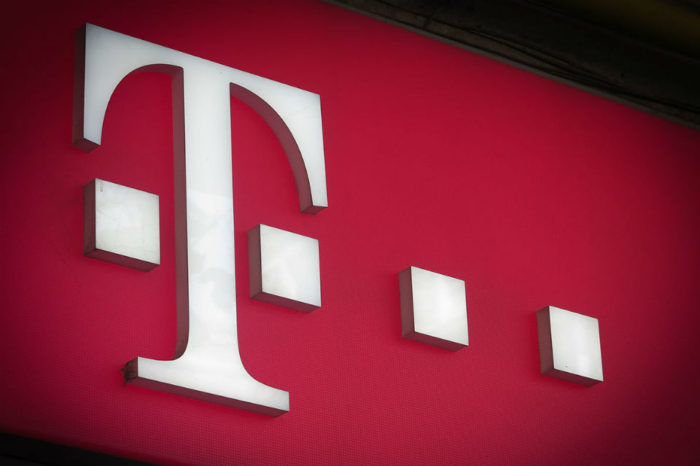How Telcos are redesigning their journey: connectivity challenges, digital education and the 5G delay in Europe

At the beginning of the year, we were talking about how the future growth of telecommunication companies around the world will be affected by their ability to create and own seamless customer experiences. We had no idea that two months later Telcos will be the greatest advantage we will have on our side in the battle against COVID-19.
As more than 20% of the world population was in lockdown at the beginning of the pandemic and as we are expecting a second wave of infections to hit, telecom companies are the ones that are responsible for our online presence and they are essential to the development of the digital economy.
Overcoming the connectivity challenges during COVID-19
The demand or urgency for capacity is magnifying at a global level, especially due to the exponential development of application using data. This puts pressure on Telcos to provide ever-more connectivity and improved products and services.
In Romania, there are approximately 4.1 million fixed telephone lines and about 19 million mobile telephony users. Our country has a strong telecom infrastructure, which can cope with high traffic volumes.
„Telcos have not had so much to lose compared to companies in other industries due to the technology and network in which they operate. Moreover, telephone operators have been saving many other companies due to facilitating distance communication between employees and partners. Significant increases in internet and telephone traffic have begun to be announced by all major communications operators in Romania, and they declared they have taken steps to ensure the continuity of services amid increasing data traffic due to the isolation of the population at home. However, they also recommended that users have a reasonable consumption of technology.”, mentioned Ella Chilea, Partner, Audit & Assurance Services, Mazars Romania.
According to Mazars France, the issue regarding the pandemic was not on how companies would handle the rise in traffic, but how businesses would migrate their people to working remotely. The increased cyberattacks – namely phishing and email scams – seen at the beginning of the lockdown period validated that question, but Telcos have largely gone out of their way to help organisations protect their IT infrastructure.
Education in a digital society powered by Telcos
Education has been one of the hardest hit sectors by the COVID–19 pandemic. This disruption is felt by many families around the world: homeschooling was not only a massive shock to parents’ productivity, but also to children’s social life and learning. Not all families had the resources to support their children, but large companies and governments tried to make up for those shortcomings.
In 2016, Orange launched Digitaliada, which is a national program to support digital education in middle school classes. It encourages the use of digital educational content in the classroom of alternative working methods to increase students’ school performance and integration. During the suspension of school courses, the Online Learning and Testing section of the Digitaliada platform proved to be very useful for the continuity of the educational process, for any teacher and student in Romania. The traffic on the Digitaliada platform increased by over 250% compared to the previous semester, and in March, the month in which the school was suspended, over 400,000 unique visitors were registered. Regarding the Online Learning and Testing section of the platform, during this period over 30,000 users have registered and are active.
„The Orange Foundation is the leader of the digital education in Romania and one of the most advanced in the use of digital methods within the teaching-learning process in Europe. Every year we add thousands of scientifically validated digital educational materials to the Digitaliada platform. We organize hundreds of events in schools to promote education using digital methods among teachers in Romania. During the state of emergency, we added a video conferencing module and organized 28 webinars for over 600 teachers interested in using the Online Testing and Learning platform. We are glad that this tool has also proved useful for conducting online lessons. Our pioneering experience has made the forced transition to distance learning less stressful for Digitaliada teachers who were familiar with the platform and the use of digital methods.”, mentioned Amalia Fodor (photo), Director of the Orange Foundation.
Is 2020 the year of 5G technology implementation?
The activity of mobile telephony operators will be resumed and optimized when the situation allows. The only loss that these companies faced during this period was the delay in the implementation of 5G systems, which will resume with the end of restrictions in the European countries. Companies will restart 5G plans, including the physical installation of new infrastructure. This requires a high level of investment, so companies need to be able to restart the launch, but ensure that they have the financial and operational capacity to do so.
„According to the Commission’s 5G Observatory, when it comes to 5G trials, Europe excels with the count at 191 as of March 2020, along with 138 future 5G-enabled cities. On July 24th, the EU Member States published a report on the progress made in implementing the joint EU toolbox of mitigating measures, which will address security risks related to the rollout of 5G. As a central critical infrastructure for future technologies, it is very important that this generation of mobile networks be implemented quickly and safely everywhere.”, mentioned Ella Chilea, Partner, Audit & Assurance Services, Mazars Romania.
Working from home has proven to be often more efficient and more convenient, reminding many people about the need for a better work-life balance. The state of emergency also generated a massive dependence on telecom services: video conferencing, instant messaging, or confidential file sharing and storage. Outside of this environment, people have relied on e-commerce platforms and healthcare assistance through mobile apps. We don’t know what the future holds, but clearly technology will be a huge part of our lives, which translates into higher demand for secure connectivity. Telcos companies have enjoyed a good reputation during this period, as COVID-19 has positively changed people’s thinking about their role and resilience.














